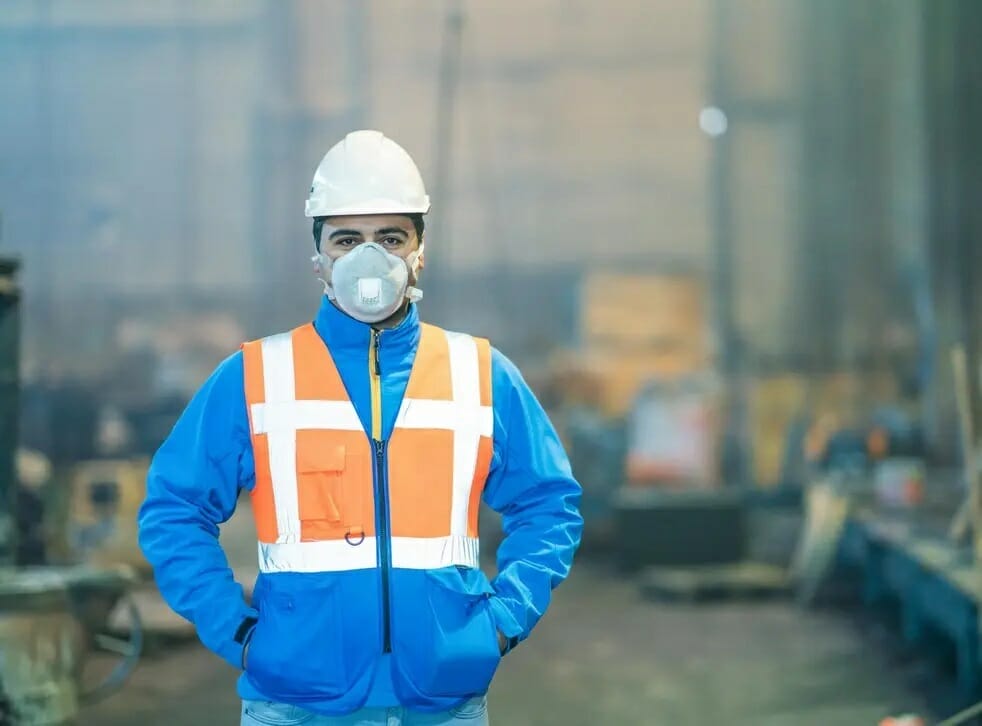Personal protective equipment not only protects employees from workplace injury but lowers the cost of accidents.
Personal protective equipment, or PPE, refers to any workwear that an individual might wear to avoid injury while on the job. It protects the wearer from physical injury and other risks in the workplace. It can include anything from gloves to a full-body suit for a firefighter.
For dangerous work, such as manufacturing and mining, the employer must ensure the safety of the workers. Employers in these industries are generally aware of the necessity of providing PPE. However, PPE can play an important role for businesses in other sectors, where it can be overlooked.
Why is PPE Important?
Personal protective equipment not only protects employees from injury but lowers the cost of accidents. Furthermore, it reduces employee downtime due to avoidable injuries. Employers are also responsible for instructing employees on using appropriate PPE and ensuring that they comply with their proper use.
According to the Protective Equipment at Work Regulations 1992, businesses are legally obliged to ensure their employees wear appropriate protective gear. As an employer, it is your obligation to ensure that your employees are equipped with high-visibility workwear and protective equipment, depending on the nature of their work. Bright Gear and Glow Gear PPE workwear combine waterproof features with high-visibility clothing to keep workers safe and healthy in all weather.
Why Your Business Needs Personal Protective Equipment (PPE)
Here are some of the key reasons why your business needs personal protective equipment (PPE).

It Avoids Liability Problems
Of course, as an employer you don’t want any of your employees to be injured. However, if an injury does occur because you supplied protective equipment but your employee failed to wear it (or to wear it properly) you may be off the hook, legally speaking. It varies from case to case, but providing all necessary PPE as part of a robust health and safety policy will generally ensure that your company does not bear extensive obligation if any employee suffers an injury or illness due to their work.
Even if your employees are doing a quick task or something they’ve done thousands of times, you should never let them skip using PPE. An employer can be legally accountable if their employees face illness or injury due to a failure to use PPE in the workplace. As an employer, you should ensure your employees are trained to thoroughly understand which equipment is required for specific tasks and what it is designed to protect.
Not Using PPE Can Have Long-Term Consequences
If your workers are absent from work due to illness or injury, this can be costly for your business. You will still have to pay sick employees, reducing productivity and increasing payroll costs. If you provide the proper PPE to your employees, this will reduce injuries and illnesses. Employees will use their time productively, which will, in turn, increase your business revenue.
Most important of all, serious workplace illnesses and injuries can have long-term consequences for their health. Workers can take advantage of medical knowledge about risk factors and use PPE to protect their health and security, both now and in the future.
It Improves Employee Morale
PPE will make the employees feel safe even if they do dangerous work. This will show that you care about your employees, boost morale, and help you build closer relationships with your staff. This, in turn, helps to reduce employee turnover that will greatly save your business on recruitment and training costs.
It Helps You Avoid Penalties and Fines
According to the 1992 PPE regulations, all employers are obliged to provide Protective Equipment at work. You also have a legal obligation to identify and manage any risks arising from your workplace activities. Failure to comply with these laws and regulations could get you in trouble with the authorities and expose you to potentially costly penalties. Additionally, employees may file a claim against you if they are injured because of your negligence.
It Affects the Reputation of Your Business.
When you provide PPE at work, it helps to improve your business’ reputation. If you do not provide protective equipment at work and this results in an injury, the unhappy employee may spread the word, damaging your business’ reputation. The authorities may also disclose your case online if you have been fined or prosecuted. Damage to your reputation in this way can be more costly than any fine or penalty, as it can cause you to lose customers over the long term.
A positive culture of health and safety can enhance employee morale and show your staff that you care about them. A poor or deficient culture of health and safety has the opposite effect. After all, who wants to work for a company that is not concerned about their overall safety and well-being?
In a nutshell, if you want your business to succeed, you need to protect your most valuable asset: your employees. This means providing them with the appropriate protective equipment and making sure they understand its importance.











